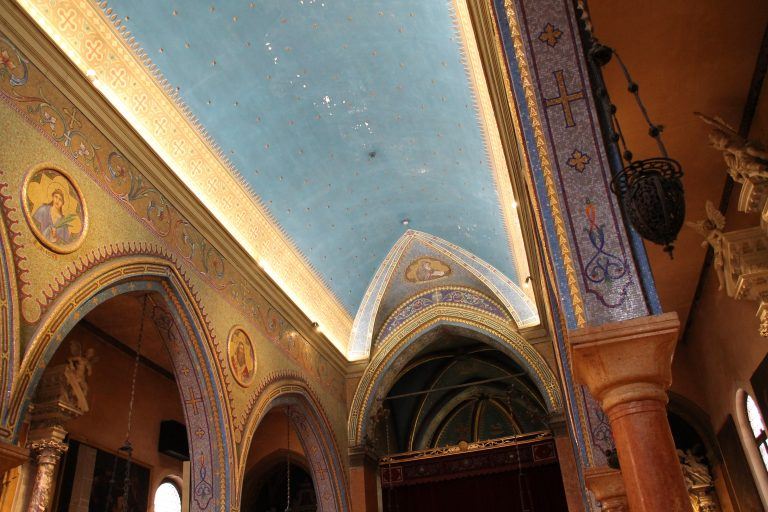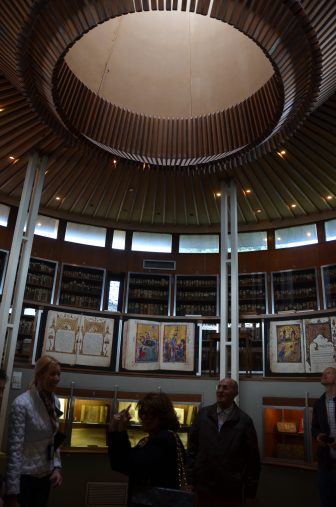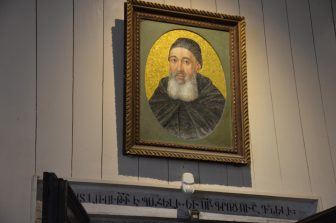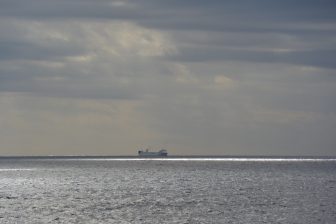
[ Apr.2017 ] There is an island of Armenian people in Venice in Italy.
When we were planning for this holiday, my husband found this island, Isola di San Lazzaro degli Armeni online.
It is located 2 km southeast of Venice’s main island and we found that they have a guided tour only once a day.
We were curious so decided to go there.
I have somewhat of an attachment to Armenia because it was a lovely country when I visited about 12 years ago and I have a friend in London whose husband is Armenian.
We thought that people who visit this island would only be whimsical ones like us, but we were wrong.
The water boat arranged to join this tour was really full.
Most of them seemed to be the Armenian diaspora.
There were three tours, in Italian, in Armenian and in English, but there seemed many French Armenian visitors and they were complaining “Why not French?”.
I was imagining before arriving on the island that there would be an Armenian church with the pointed roof, but there was not.
In medieval times, this island was a leper colony, but after that it was abandoned.
Then in 1717, it was given to a monk called Mkhitar Sebastatsi who was running away from the Turkish oppression.
Currently it is a monastery with 14 monks and also an educational institute which you can learn not only theology but also other subjects and the guide was one of the students here.
He was a proud Armenian and he was proud of their highly valued education as well as the world treasures they owned here, but on the other hand he sometimes showed an expression of self-mockery maybe because this place was not so well known in the world.

The most interesting place was the round room of manuscripts with mysterious acoustic qualities.
When you stand in the centre and say something, you hear your voice from outside, too, though people around you hear you just as usual.
This island became fairly famous a couple of years ago because in the Venice Biennale in 2015, the Armenian Pavilion which was on this island won the Leone d’Oro.
2015 was the 100 years’ anniversary of the Armenian massacre in Turkey.
Turkey still denies that it was a genocide, but our guide explained “Soldiers fighting against soldiers, that is a war. But if soldiers kill civilians, that is the genocide”.




